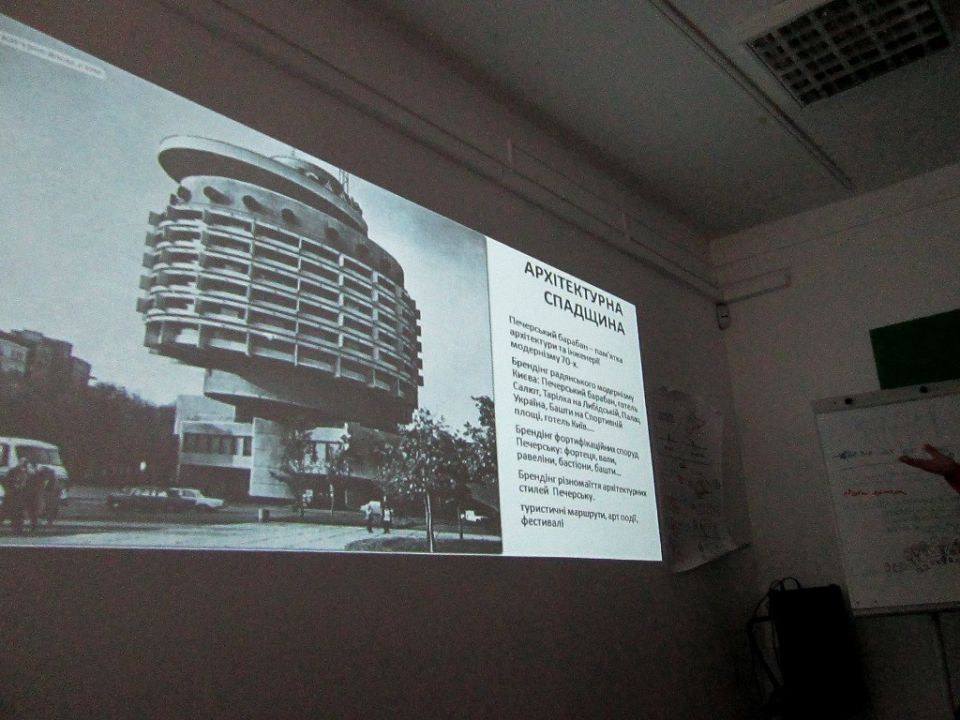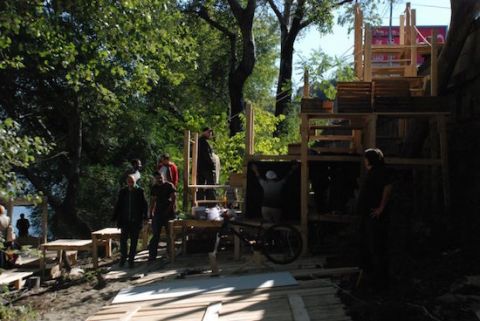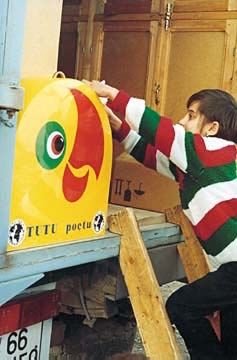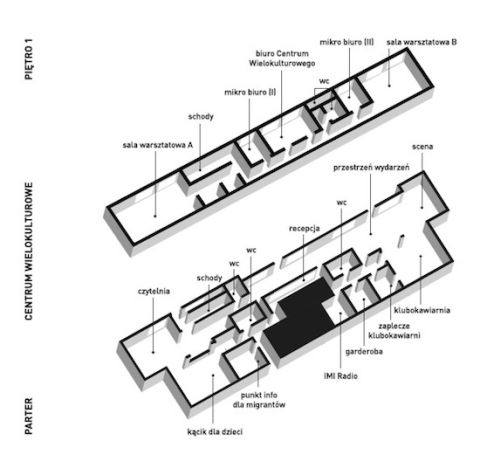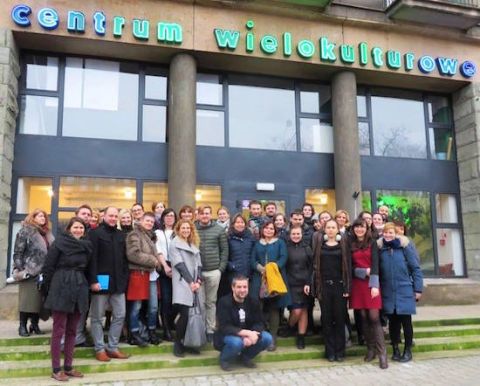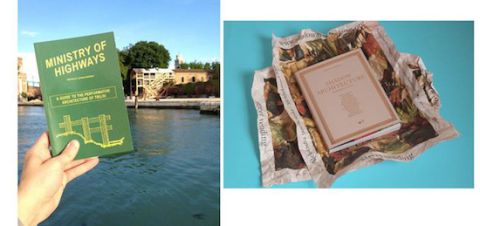Culture of Participation is a practical platform for artists, architects, cultural managers, educators, social and human rights activists, and local government leaders who use their talents, passion and experience to create conditions for a positive change.
Introduction
Culture of Participation was a practical platform for artists, architects, cultural managers, educators, social and human rights activists, and local government leaders who use their talents, passion and experience to create conditions for a positive change.
The idea of the Conference emerged after 12 years of Transkaukazja, the only international program and festival inspired by the unique cultural space of contemporary Caucasus.
While one of the main goals of the Conference is to sum up and share the experience of Transkaukazja, we went beyond this. Namely, we wanted to show how local bottom-up initiatives with little resources can indeed make a positive change in an innovative manner in most “unexpected places” on Earth. We also wanted to demonstrate that such projects can and should become a source of knowledge and inspiration for others in Poland and Western countries, thus challenging the common assumption that all good ideas originate in the West.
The Program
17 November
10.30 - creating the Bazaar, the Multicultural Center in Warsaw (CWW)
19.00 - opening of the Bazaar to the public (event on Facebook)
18 November
10.00 - 18.00 - work in groups, CWW, Dzika Strona Wisły, North Praga Public Library, Warsaw ZOO (all the venues are located at Hallera square)
19 November
10.00 - 12.00 - work in groups
12.30 - 16.30 - wrap up session, CWW
A detailed program is below:
17 November, Thursday - Do-It-Yourself Bazaar
The participatory spirit of our Conference means that it was not organized in a regular format with presentations and panel debates. Instead, it took form of a Do-It-Yourself Bazaar, a fair of initiatives and ideas. Participants got to use the ready-made elements however they like to construct their stands and present the activities conducted by them and/or their organizations. This joint activity helped to integrate participants and let them exchange ideas and working methods already at the first stage of the Conference. In the evening there was a guided tour through the Bazaar for the public.A film about the creation of One Caucasus Town. A Not Perfect Town of Our Dreams, as we call it, is created every year by international volunteers of the One Caucasus Festival (including architects) and local communities of the multi-ethnic region of Marneuli.
18-19 November, Friday-Saturday, Working groups and a sum up session
During these two days, thematic working groups of 5-15 persons worked in a unique atmosphere benefiting from each others’ ideas as well as trainings, presentations and workshops adapted to the needs of participants. The common elements for all groups’ work was interdisciplinary approach and impact on local change. Each group prepared a “product” related to their topic, for example, film about need for good informal education or visualization of an architectural concept.
The final list of groups’ topics was adjusted to the profiles and interests of the selected participants. Group topics included:
- social / participatory architecture +
- education +
- contemporary art +
- participatory budgets / processes +
- work with migrants and minorities +
- human rights / advocacy + and music-creating +
Each group had a Facilitator who provided support for the group before and during the Conference as well as helped collect the most important results of the group’s work. At the end of the second day we gathered for a wrap-up session for the presentations of the working groups. The session ended with the speech of Adam Michnik "From Culture of Protest to Culture of Participation".
The Conference was preceded by the workshops and working meetings focusing on participatory budgeting and planning organized for the leaders of participatory budgets in Georgia, Moldova and Ukraine (15-16 November).
The venue
The main venue of the Conference was the Multicultural Center of Warsaw – a place designed to be used by representatives of different cultures, local organizations and public institutions: a great example of cross-sector cooperation and participatory planning involving dozen of NGOs and the Warsaw City Hall.
Other venues, such as a local library and kluboteatr “Dzika Strona Wisly” [theatre-club “Wild Side of Wisła”], are partner institutions in the neighborhood of the Multicutlural Center. All these venues are located around Haller square in Nowa Praga [New Praga], one of the most intriguing and unusual districts of Warsaw.
Participants
The Conference brought together experts and practitioners from 20 countries of the European Union, Eastern Partnership, Middle East, Africa, and Americas.
Some of the participants were:
- Anna Czaban (Poland) – curator of contemporary art, works at Department of Community Oriented Projects in Center of Contemporary Art - Ujazdowski Castle in Warsaw, initiator and curator of many interdisciplinary projects and art exhibitions, co-editor of comprehensive book about curatorial practices in Poland.
- Carol Daniel (Trinidad and Tobago) – social and human rights activist, the founder of a cross-region bottom-up-organized NGO Caribbean Development Foundation, initiator of advocacy campaigns across the region related to civic society and women’s rights.
- Joanna Erbel (Poland) – sociologist, social activist, urban researcher and policy-maker, a former candidate for Mayor of Warsaw.
- Alexandra Khalepa (Ukraine) architect, urbanist, scientist, facilitator, expert in the field of cultural heritage. Postgraduate student at the Institute of Contemporary Art in Ukraine, project coordinator at KievUrbanLab.
- Urszula Majewska (Poland) – former deputy director of Warsaw Social Communication Center (responsible for participatory processes in the city), coordinator and expert in international projects related to participatory processes and projects.
- Mohamed Refai (Tunisia) – architect, designer, filmmaker and social activist, former prisoner-of-conscience.
- Lude Reno (Martinique) – film-maker and educator, initiator of education-through-filmmaking initiatives in Burma, Georgia, Mexico, Poland, Tunisia and many other places.
- Rick Roth (USA) – human rights activist, the founder of the legendary Amnesty International USA Group 133 (Cambridge, MA), initiator of the Get On The Bus campaign.
- Tom Russotti (USA) – artist and educator who explores the aesthetic and performative nature of large cultural phenomena such as sports, signs, and organizations.
- Pako Sarr (Senegal) – composer, vocalist, multi-instrumentalist, author of many international, interdisciplinary based-on-music initiatives.
- Armine Shahbazyan (Armenia) – architect and designer; participated in Urban Heritage Assessment Project of Shoushi town on the measurements of about 200 historical buildings, Project Coordinator at Urbanlab.am, a Yerevan-based urban “think & do tank”.
- Merab Topchishvili (Georgia) – the leader of Marneuli municipality - a region in Georgia at the borer with Armenia and Azerbaijan), home of One Caucasus Festival and the first full-scale participatory budget in Caucasus.
The Book
The Conference inspired some of the texts for the publication of the book “Everyday Utopias”. The format of the book combines high profile interdisciplinary art book with a practical guide for activists, educators and local decision-makers. The book is divided into the three main parts:
- Collection of texts and stories in various formats: reportage, art work, photo-reportage, comic book story, scientific article of interdisciplinary approach – highlighting the topics and specific cases related to the Conference;
- Illustrated interviews with the participants of the Conference – presenting some of the most inspiring local initiatives across the globe;
- Practical, brief ready-to-implement step-by-step scenarios for activists, educators and local government leaders.
Follow us on Facebook to stay updated!
Call for participants open till 6th of November
- the Warsaw City Hall,
- Polish-American Freedom Foundation as part of the RITA – “Region in Transition” Program implemented by the Education for Democracy Foundation,
- "Support for Democracy" Program of Solidarity Fund PL financed within the framework of the Polish Development Cooperation Program of the Ministry of Foreign Affairs of the Republic of Poland.









